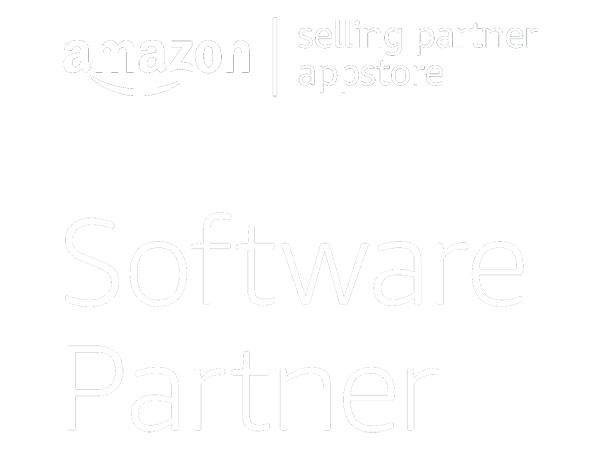The leaves are changing and the kids are back in school. For some people, it’s time to put on a hoodie, sip their favorite fall drink, and unwind. But not for you. You’re in full preparation mode because it’s almost time to move products and grow your sales. For the Amazon seller, holiday preparation is your tallest order of the year. In this post, we’ll go over four tips to keep your business on track amidst the chaos.
Track and forecast your cash flow
Hopefully, you’ve already got a head start on Amazon Seller holiday inventory. If not, it’s time to start working immediately. November 1st is your last day to get inventory to an Amazon warehouse. Keep in mind that it may take weeks or months for you to acquire certain products. Amazon has a three-to-four week check-in process for your inventory. So at this point, you should focus on inventory that you can get your hands on quickly and meet Amazon’s deadline.
Frontloading inventory for a busy season creates a major strain on an e-commerce seller’s cash flow. Although the deadline inventory is quickly approaching, it could still take at least 10 weeks before you’ll actually see the cash from your Black Friday sales. That means you’ll have bills to pay from the time you order your holiday inventory and the time the money hits your account.
Get a handle on your cash flow to avoid stretching too far in the race for inventory.
Track seasonal trends
How much should you aim to spend on inventory, labor, and shipping costs for the busy season? How much should you expect to do in sales?
Your historical data can serve as an excellent guide. At a macro level, you’ll want to see categorized expenses for inventory, labor, shipping, and any other significant costs for the holiday season. Income trends will help you visualize how much you might expect to make, but more importantly, when you can expect to receive it. This will help you manage cash flow to keep your suppliers, vendors, and employees paid at a time where your costs are unusually high.
From a sales perspective, Amazon sellers can track product sales trends with Keepa, which shows historical price charts for millions of Amazon products. This is a great way to make informed predictions on when to sell items at the highest points of demand and profit margin. Of course, there will be price fluctuation from year-to-year due to demand and economic conditions, but it’s still an excellent guide to help you make decisions.
Offer items fulfilled by merchant
Many Amazon sellers simply do not have the cash flow to order everything they want to sell in August and September. They get as far ahead as they can afford, send those items to an Amazon warehouse, then wait for the holidays to start getting paid.
There is another route to increase your window to order inventory and convert it to revenue. If you can offer items fulfilled by merchant, you’ll bypass the Amazon check-in process and increase your opportunities to sell.
Here are two important things to remember about Amazon shoppers in the holiday season.
First, many of them will be looking for items that sell out quickly. Customers will burn through the most popular FBA items almost immediately on Black Friday and Cyber Monday because there’s simply not enough supply to meet the demand. By storing and shipping items yourself, you might not beat the free shipping prices for Prime members, but that’s okay! Those products are in high demand, and you’re waiting out the competition. You’ll likely sell them for a bigger profit by fulfilling the orders yourself.
Second, the holidays bring all the Prime shoppers onto Amazon, but they also bring shoppers without Prime memberships. Those free shipping items are no-brainers for Prime members, but everyone else might be saving money by ordering from you.
If you can offer items fulfilled by merchant, the holidays may be a perfect time to do it.
Replenish for December
The end of Cyber Monday signals a short lull before shopping ignites again. Here are the key dates for Amazon seller holidays in December, 2022:
December 17: Super Saturday
December 18-26: Hanukkah
December 24: Christmas Eve
December 25: Christmas
December 26-Jan 1: Kwanzaa
December 26: Boxing Day (Canada)
December 31: New Year’s Eve
That’s plenty of opportunity, but there’s still a problem. Most Amazon sellers do not have time to recover from the cash crunch leading into Black Friday and Cyber Monday. Maybe you bought and sold a ton of inventory, but you’re still waiting two weeks for those sales to hit your bank account. That makes it nearly impossible to replenish your inventory in time to maximize the upcoming holiday opportunities.
There’s no perfect solution. Planning and budgeting can certainly help, but the timing still makes it very difficult. You can seek a loan, but it’s often difficult to find one at a competitive rate. In many cases, cash advances are your best bet. For a percentage of your sales (that you’ve already completed), you can receive payment in advance. You’ll pay a price, but it might allow you to restock your inventory and capitalize on the holidays again.
For a more tips on managing your business cash ahead of the holiday season, check out our Definitive Guide to Small Business Cash Flow.




